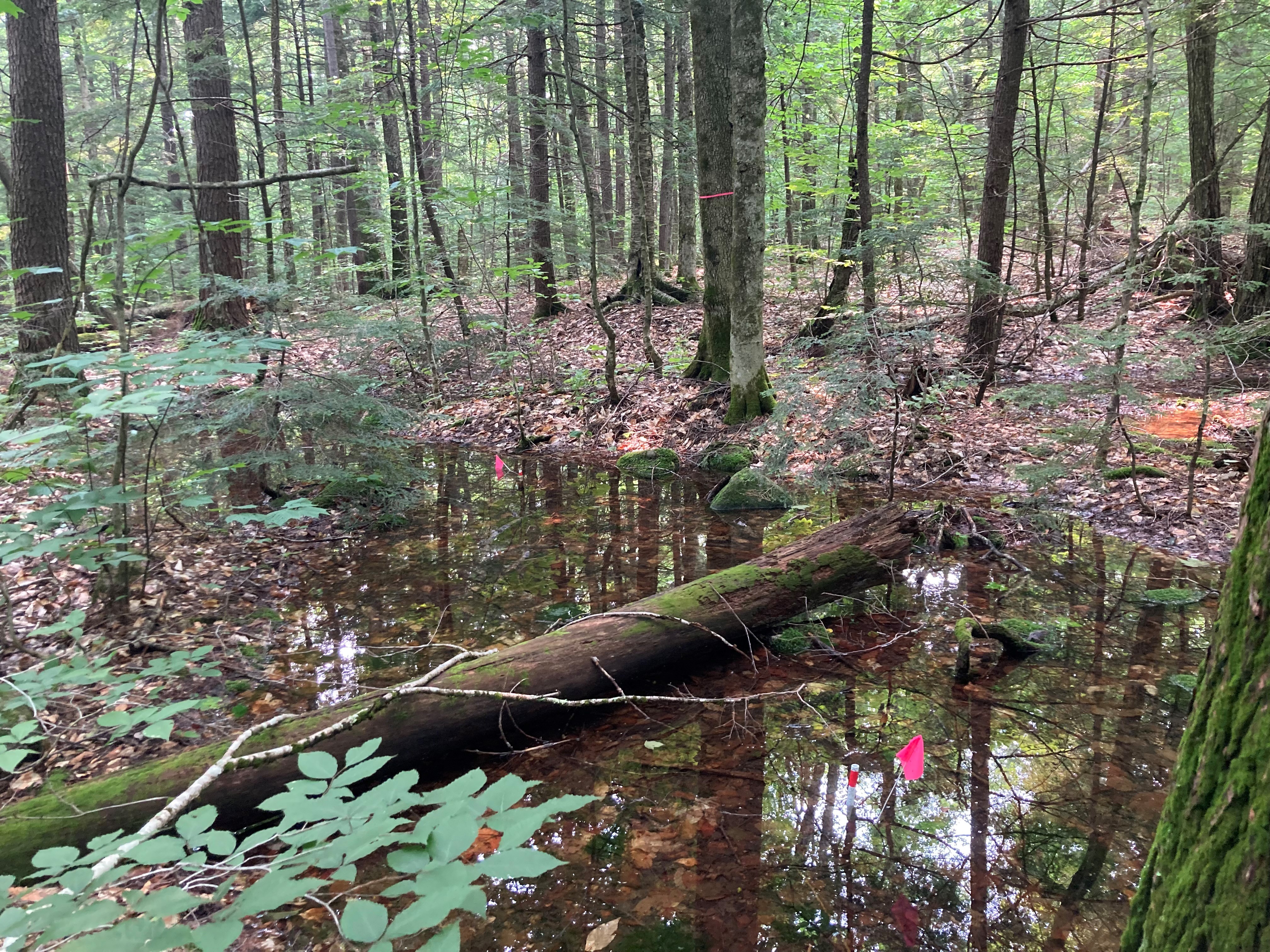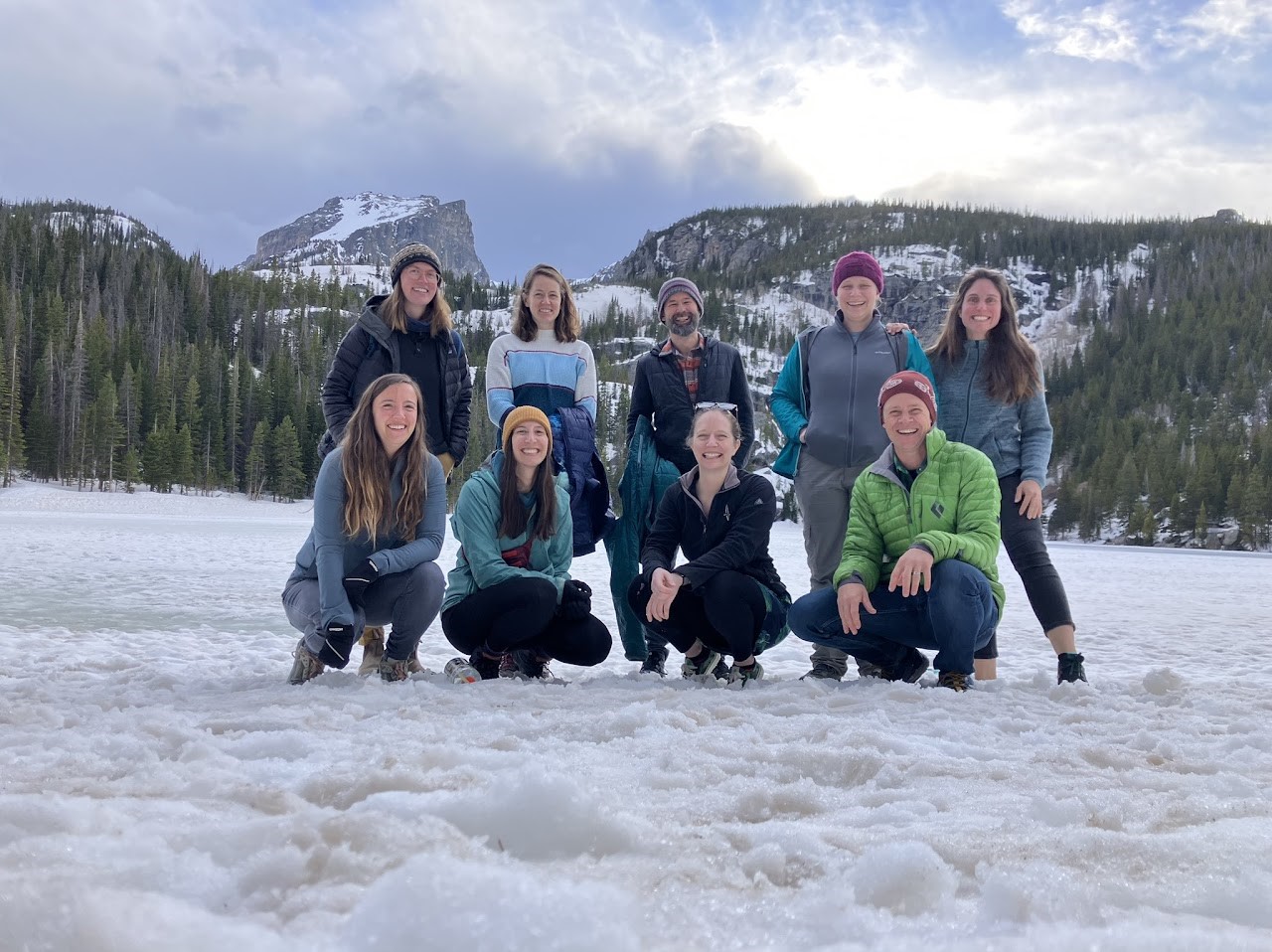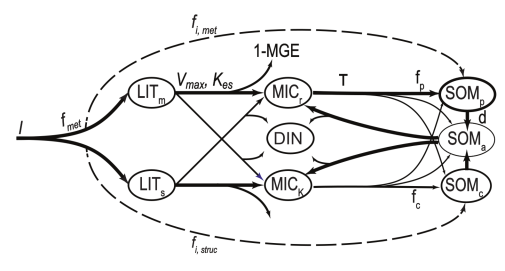
Feedbacks between global change and soil biogeochemistry
Working Group Goals:
Soils store more carbon (C) than the vegetation and atmosphere combined.  So, even small changes in this large C pool from global changes like atmospheric warming, elevated carbon dioxide (CO2), nitrogen (N) deposition and altered precipitation regimes can alter the C-climate feedback. The goal of this working group is to improve our understanding of soil feedbacks to climate change with particular foci on how N availability and environmental context may shape these feedbacks.
So, even small changes in this large C pool from global changes like atmospheric warming, elevated carbon dioxide (CO2), nitrogen (N) deposition and altered precipitation regimes can alter the C-climate feedback. The goal of this working group is to improve our understanding of soil feedbacks to climate change with particular foci on how N availability and environmental context may shape these feedbacks.
Ongoing Research: To better understand C-N interactions, postdoctoral researcher Katie Rocci led a perspective piece on the controls of soil carbon-to-nitrogen ratios (C:N) in both empirical work and processed-based terrestrial biogeochemistry models. Since we use these models to predict our future climate, ensuring they accurately capture the soil feedbacks associated with soil C:N is key. This work is under review at Soil Biology and Biochemistry. 
To better understand how environmental context shapes soil feedbacks to climate change, postdoctoral researcher Katie Rocci is leading a study on historical contingencies of soil moisture on microbial litter decomposition. Working with a team led by Mark Bradford at Yale University, we've found that the maximum amount of CO2 emitted during decomposition is dependent on historical soil moisture, suggesting soil microbes may be adapted to their local environment in ways that will shape their response to climate change.  We are using data from the Bradford team to calibrate the Microbial-Mineral Carbon Stabilization (MIMICS; Fig 3.) model and determine whether this dependency could be driven by microbial catabolic potential (decomposition rate) or anabolism (carbon use efficiency and microbial turnover). We will then validate our findings with field data and use an altered structure of MIMICS to determine whether historical contingencies of soil moisture on microbial decomposition modify soil feedbacks to climate change.
We are using data from the Bradford team to calibrate the Microbial-Mineral Carbon Stabilization (MIMICS; Fig 3.) model and determine whether this dependency could be driven by microbial catabolic potential (decomposition rate) or anabolism (carbon use efficiency and microbial turnover). We will then validate our findings with field data and use an altered structure of MIMICS to determine whether historical contingencies of soil moisture on microbial decomposition modify soil feedbacks to climate change.
Researchers Involved:




